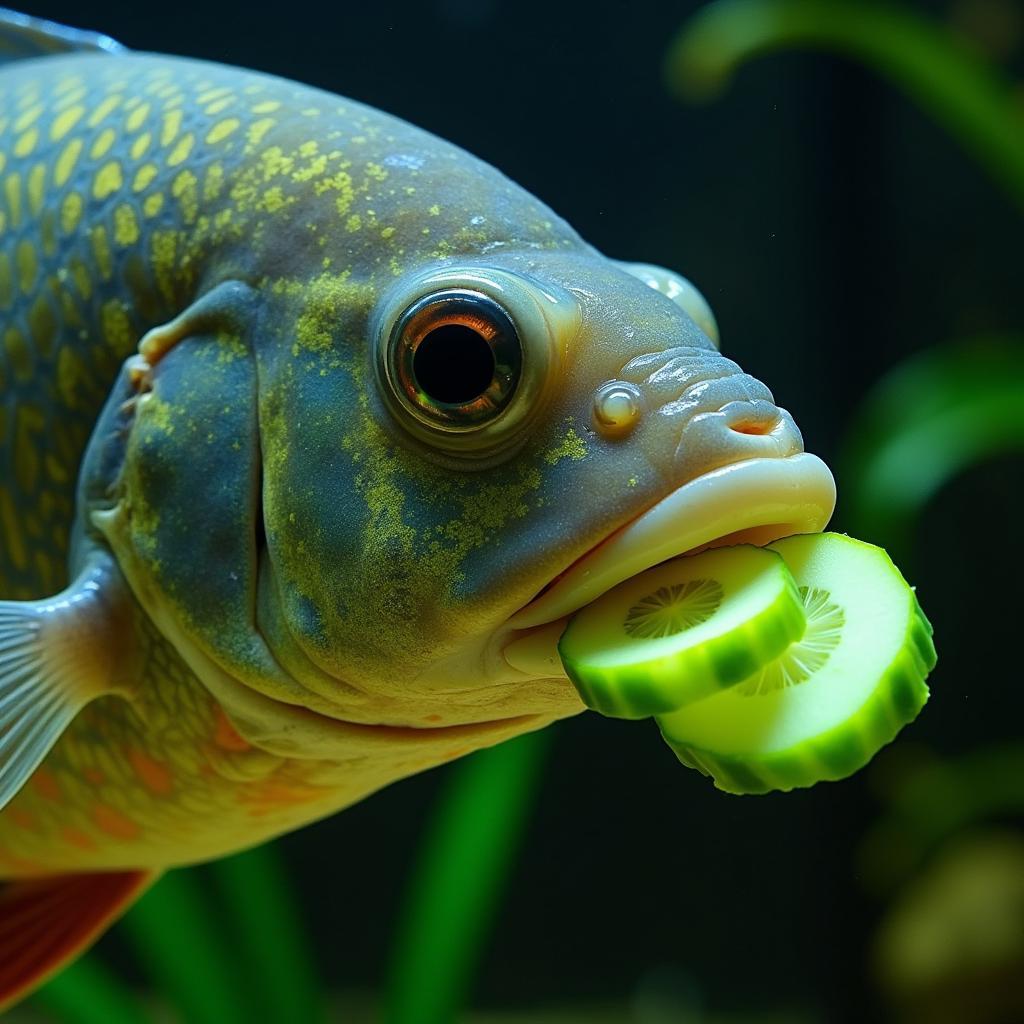African Cichlids and Cucumber: A Surprising Snack
African cichlids are known for their vibrant colors and fascinating behaviors, making them popular inhabitants of freshwater aquariums. While their dietary needs vary depending on their species and whether they’re herbivores, omnivores, or carnivores, one question often arises among aquarists: Can African cichlids eat cucumber?
The Surprising Answer: It Depends!
The answer isn’t a simple yes or no. While cucumber isn’t a traditional food source for African cichlids in the wild, some cichlid species, particularly herbivores and omnivores, can benefit from cucumber as an occasional treat. Cucumber is low in protein and fat but rich in water and fiber, making it a good source of hydration and aiding in digestion.
However, offering cucumber to your cichlids should be done with caution and in moderation.
Why Feed Cucumber to African Cichlids?
- Hydration: Cucumbers are primarily water, making them a great way to supplement your cichlids’ water intake, especially during warmer months.
- Digestive Health: The fiber content in cucumber aids in digestion and can help prevent constipation in cichlids.
- Nutritional Variety: While not a primary food source, cucumber offers a change of pace and introduces variety into your cichlids’ diet.
Choosing and Preparing Cucumber for Cichlids
Not all cucumbers are created equal when it comes to feeding your cichlids.
- Organic is Best: Opt for organic cucumbers whenever possible to avoid potential pesticide residues.
- Thorough Washing: Even organic cucumbers should be washed thoroughly to remove any dirt or debris.
- Peeling is Optional: While the peel is safe for cichlids, some aquarists prefer to peel it to make it easier for the fish to consume.
- Slicing for Easy Consumption: Cut the cucumber into thin slices or small pieces that your cichlids can easily grab and eat.
 Cichlid fish eating a cucumber slice
Cichlid fish eating a cucumber slice
Cautions and Considerations
- Moderation is Key: Cucumber should only be an occasional treat, not a staple in your cichlids’ diet.
- Potential Digestive Issues: Overfeeding cucumber can lead to digestive upset in some cichlids.
- Water Quality: Uneaten cucumber can quickly decompose in the tank, negatively impacting water quality.
Observing Your Cichlids’ Response
After introducing cucumber, carefully observe your cichlids for any signs of digestive issues, such as bloating, lethargy, or changes in appetite. If you notice any adverse reactions, discontinue feeding cucumber immediately.
Expert Insight
“While not a traditional food source for African cichlids, cucumber can be a beneficial supplement in moderation,” says Dr. Amina Kenyatta, an aquatic veterinarian specializing in cichlid care. “Always monitor your fish closely for any signs of digestive upset, and prioritize a balanced diet based on their specific dietary needs.”
Conclusion
Incorporating cucumber into your African cichlids’ diet can be a healthy and enriching experience. By following the guidelines above and monitoring your fish carefully, you can provide them with a varied and nutritious diet. Remember, a happy and healthy cichlid is one that enjoys a balanced diet and a well-maintained environment.